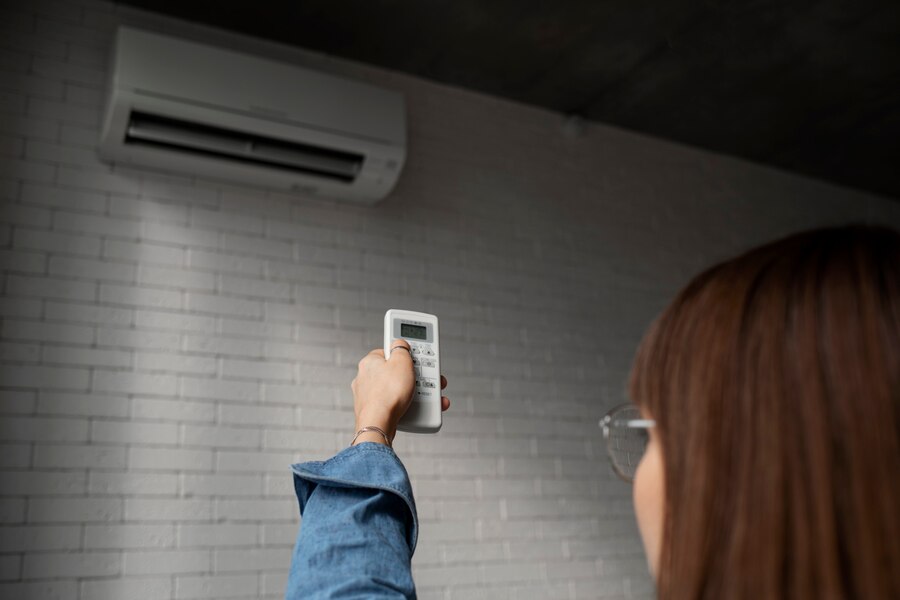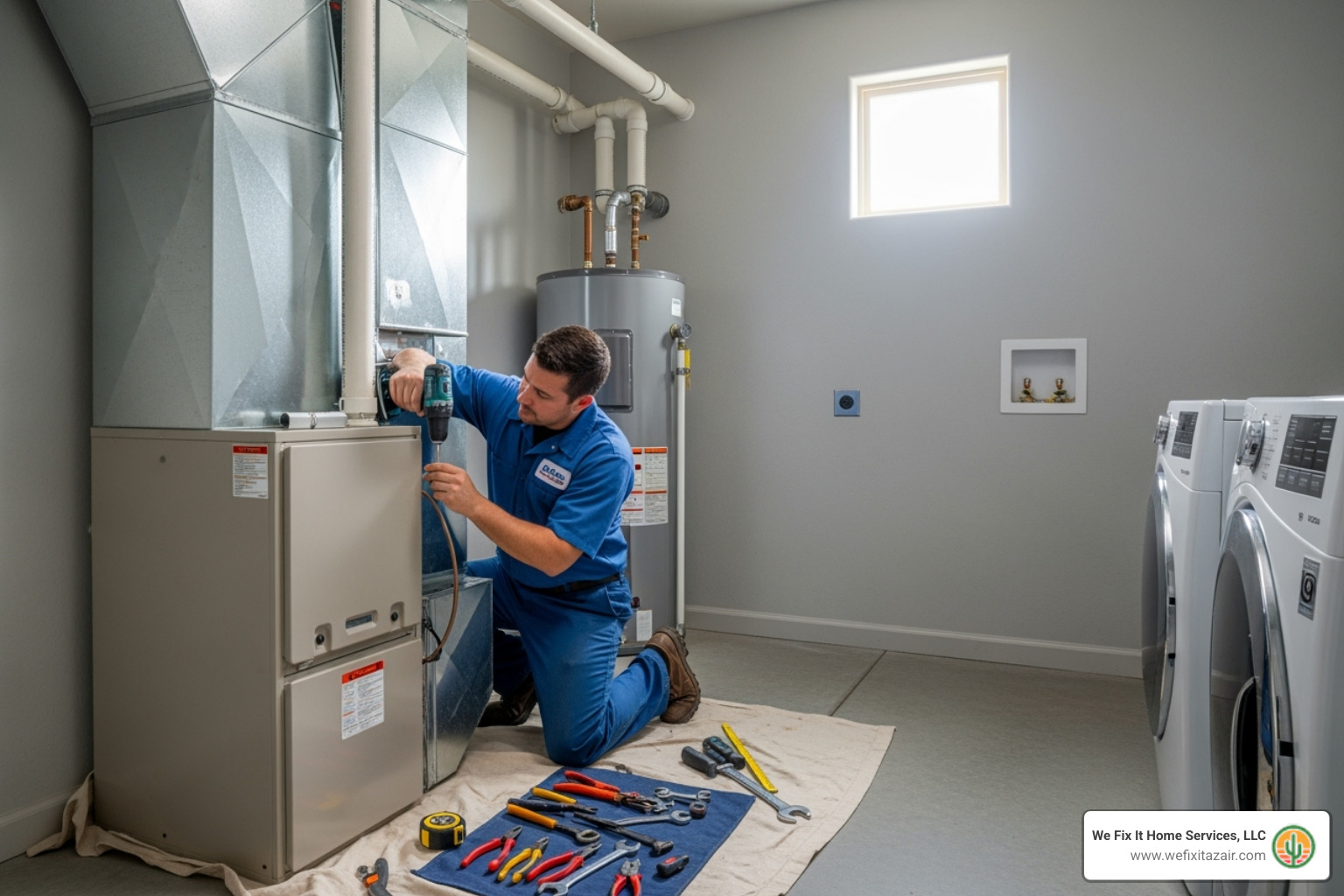Troubleshooting AC Electrical Issues in Queen Creek

When summer hits Queen Creek, air conditioning isn't a luxury. It's a daily need. If something goes wrong with your system, especially during the peak heat, the entire house can become uncomfortable fast. One of the more frustrating problems involves electrical issues in the AC unit. When your system suddenly stops working or starts acting strangely, the problem could be electrical. And unless it's addressed quickly, it could lead to bigger damage or leave you sweating in your own living room.
Electrical issues in your AC might not always be easy to spot, but they're more common than most people think. Homeowners may experience problems like the AC not turning on at all, cutting off randomly, or making strange clicking or humming sounds. These are all signs something isn’t quite right with the system’s power or control components. Knowing what to look for can help you take action before the issue gets worse or puts your comfort at risk.
Common AC Electrical Problems
Air conditioners rely heavily on a stable electrical connection to run both safely and efficiently. When something electrical goes wrong, the whole unit can shut down or behave unpredictably. Some problems are small and easy to fix. Others point to deeper system issues that need expert repair.
Here are common electrical problems homeowners in Queen Creek might run into with their AC:
- Tripped circuit breakers: If your AC suddenly stops, the breaker might have tripped to prevent overheating or damage.
- Wiring problems: Loose or damaged wires can cause irregular power delivery or make your AC stop working entirely.
- Burnt capacitors: These small components jump-start motors in your system. When they go bad, your fan or compressor might not run.
- Blown fuses: A blown fuse in the disconnect box outside your house can cut off power to the system.
- Relay and contactor failure: These act like switches that let power flow when needed. If one fails, your equipment may not turn on or off reliably.
You might notice lights dimming when the AC kicks on, or a buzzing sound near the unit. Sometimes the thermostat might read normally, but the system won't respond. These signs usually trace back to an electrical fault that needs prompt attention. One homeowner in Queen Creek reported their system running normally for 10 minutes before shutting off completely. The problem turned out to be a failing contactor that couldn’t hold the connection. That’s not something you can see just from glancing at the unit, but the symptoms told the story.
It’s important never to assume that small electrical glitches will fix themselves. They almost always get worse over time or result in damage to more expensive parts. Whether it's a breaker that keeps tripping or a system that randomly shuts off, these are signs that shouldn’t be ignored.
Diagnosing Tripped Breakers
One of the first steps when your AC stops working is to check the circuit breaker. This should be done before trying anything more advanced. The breaker panel is usually located in your garage or utility room, and inside you’ll find labeled switches for different parts of your home. If the switch for the AC is in the middle or off position, it likely tripped.
Here’s how to safely check and reset it:
1. Open your breaker panel and look for the switch labeled AC or something similar.
2. If the switch is not in the full on position, flip it off completely, then turn it all the way back on.
3. Wait a few minutes to see if the AC turns back on.
If the breaker trips again soon after resetting it, don’t keep flipping it. This usually means there’s a deeper electrical problem that could damage your system or create a fire risk. Breakers are designed to protect both the equipment and your home, so if it keeps shutting off, there's a reason.
Repeated tripping could be caused by:
- Low refrigerant levels causing your system to overwork
- A dirty filter restricting airflow, making the motor draw too much power
- Short circuits from worn wires or terminals
- A compressor that's working too hard due to old age or electrical faults
When these issues come up, it's time to have our professionals take a deeper look. Resetting the breaker might fix the immediate problem, but it's not a long-term solution. Without knowing why it tripped, you're only delaying the real repair. Waiting too long could lead to damage that affects the compressor or other major components.
Inspecting AC Wiring
Wiring problems in an air conditioner can be hard to spot, yet they’re a common reason for system failure during the hotter months in Queen Creek. If wires are worn, frayed, or improperly connected, your AC may receive inconsistent or no power at all. Electrical wiring doesn’t just fail out of the blue. It can be affected by age, rodents, moisture, overheating, and even vibration from regular use.
It’s important to look out for visible signs such as melted insulation, exposed copper wiring, or scorch marks near terminals. Sometimes, the signs are less obvious. You might notice the AC turning on and off randomly, taking longer than usual to start, or tripping the breaker when it cycles. All these issues can stem from bad or damaged wiring.
If you suspect the problem lies somewhere in the wiring, stop operating the AC and call our technicians. Tinkering with high-voltage parts is hazardous. Our professionals carry the tools to safely troubleshoot and repair wiring errors. They can test connections, measure voltage drops, and inspect critical parts like the contactor, capacitor, and circuit boards. A proper inspection can help avoid bigger problems, like damaging the compressor or risking electrical fires. Faulty AC wiring isn’t just inconvenient. It can be unsafe when ignored.
Handling Blown Fuses
A blown fuse in your AC system may seem like a minor issue, but it can completely shut down cooling in your home. Most residential AC units have a fuse located in the outdoor disconnect box. That fuse protects the system from damage by disconnecting power when something’s wrong, like a surge or component failure.
If your AC is unresponsive, check the thermostat first. If it's working fine but the outdoor unit is silent, the fuse might be blown. Swapping fuses without knowing why it blew isn’t recommended. Just like a breaker, a fuse blows for a reason. It could be:
- An overheated compressor
- A short circuit in the wiring
- A failed capacitor or fan motor
- An electrical surge from the power grid
Replacing a fuse doesn’t correct the condition that caused it to fail. It’s important to let our professionals inspect the system to identify whether something else needs repair. Attempting to bypass a fuse or using the wrong rating can stress the system further. A proper fuse check done with tools like a multimeter ensures nothing gets overlooked while restoring safe power to the unit.
Ensuring Safe And Reliable Repairs
Handling AC electrical issues should never be a guessing game. When something seems off, whether it's a tripped breaker, unreliable startup, or weak airflow, electrical faults should be one of the first things to investigate. Left alone, these seemingly small interruptions often lead to bigger, more expensive repairs.
What starts as a blown fuse or loose wire might lead to motor failure or compressor trouble if ignored. It’s always safer and more cost-efficient to address electrical problems the first time they show up. Random shutdowns, buzzing sounds, or a constantly running AC are all red flags that something electrical needs attention. These are not issues you want dragging on through August heat in Queen Creek.
Instead of taking chances with mismatched parts or temporary workarounds, let our technicians assess the entire system. They’re trained to look at the full picture, not just reset a breaker or replace a fuse, but to understand why the power interrupted in the first place. Getting the diagnosis right from the beginning helps avoid repeat problems down the road.
Keeping Your Queen Creek Home Cool
AC electrical issues don’t fix themselves. They need proper diagnostics and experienced handling to keep your home comfortable as temperatures rise in Queen Creek. Whether your system is showing early signs of failure like slow startups or random cutoffs, or refusing to turn on completely, electrical trouble could be at the root of it.
Taking action sooner rather than later can help avoid the discomfort of full system failure. Routine checks and paying attention to odd system behaviors go a long way. Regular service, clean components, and stable power all play a part in reliable cooling. Having an AC unit that runs smoothly throughout the summer starts with fixing what isn’t working early, especially when electricity is involved.
If you are dealing with issues like erratic power delivery or recurring breaker trips, let We Fix It Home Services, LLC help you restore reliable cooling with a prompt response to any concerns you may have. Trust our expertise in AC repair in Queen Creek for a comprehensive diagnostic that addresses the root cause of your troubles, and for a quick estimate or to book a service visit, please contact us today.




















Customer Testimonials


























